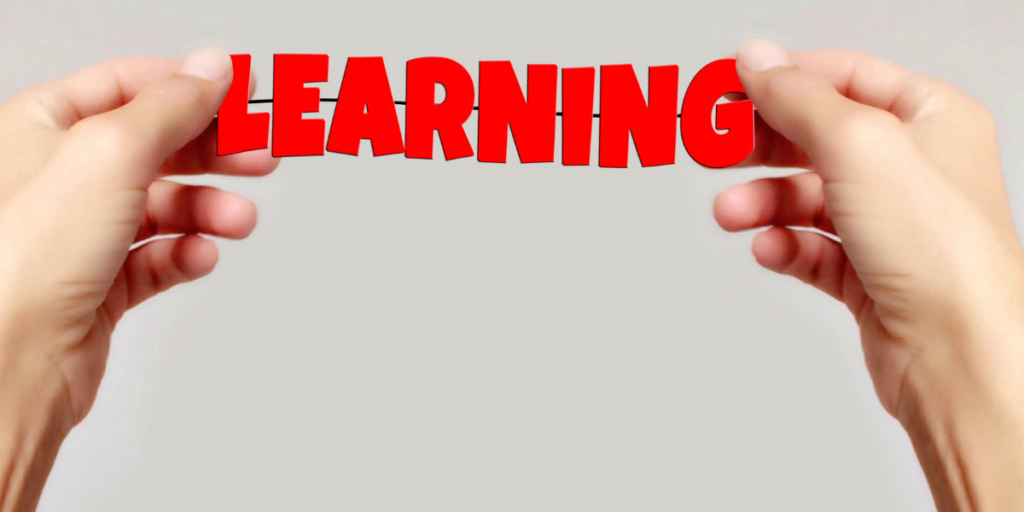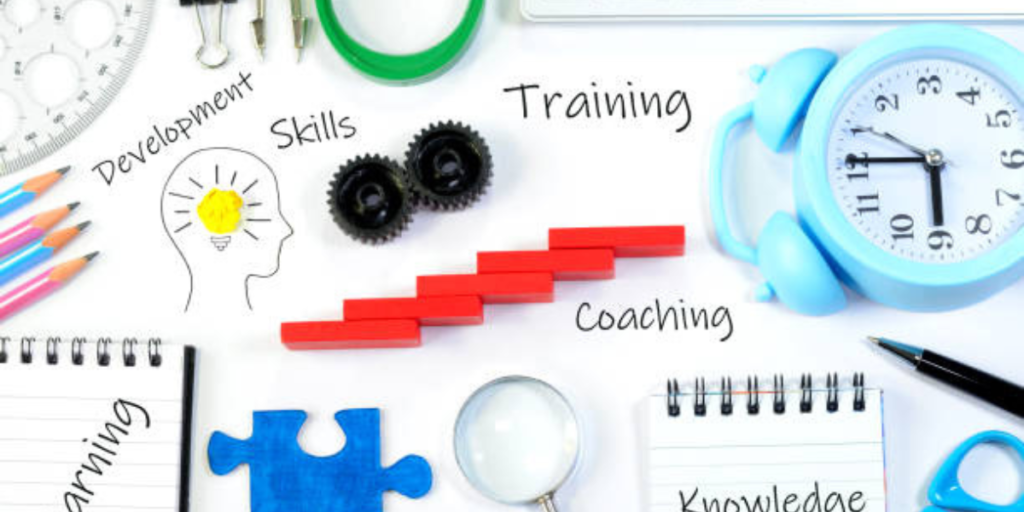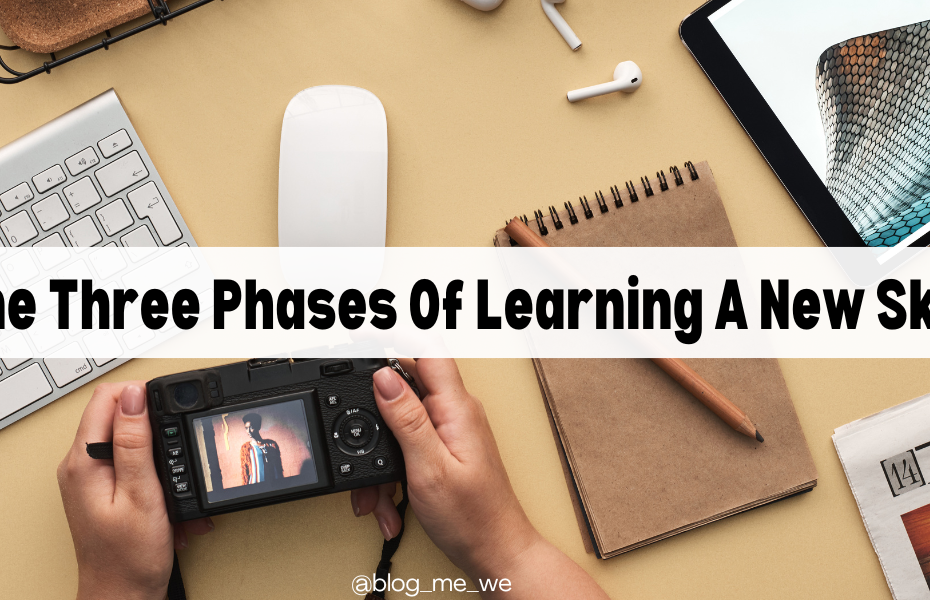There are three steps to learning a new skill. Most people don’t take learning new skills seriously, thinking that once they graduate from college or school, they are done.
Schools and colleges don’t encourage you to discover your strengths and then focus on them. Instead, they will try to give you a template for your professional life. Templates are not the best way to create extraordinary careers. These extraordinary careers are the result of years of practice.
Another theory is that schools were created to teach obedience and not question authority. It is obvious to me. It was never the “good boys” who were successful in school. It was always the rebels. That’s another topic.
It is important to learn new skills in today’s world. Your skills will be outdated by the time you graduate college. There is no “safe and secure job” anymore.
Machine Learning, AI, and automation are replacing human tasks. Humans must take on new tasks in order to be relevant and contribute to society.
After having acquired many new skills and taught them to others, I learned that there are three levels to skill development. Robert Greene’s book Mastery is also a great source of inspiration.

Phase 1: Deep Observation
Observation is the first step in any learning journey. The first step in any learning journey is to observe.
To be a good copywriter, for example, you will need to observe the copywriting of other copywriters.
It is a great way to learn by being an apprentice or intern of a master who has been on the same path you are looking for.
It is vital to have a solid understanding of the fundamental concepts that underlie the skill you want to learn. This will ensure that you reap the long-term benefits.
Learn the reason why you need the skill. What does it do for others? It will still be needed 10, 20, or 50 years from now.
Learning is a process that relies on inspiration. It is important to choose a master you admire and want to emulate. You won’t be able to learn from your master if you don’t feel inspired by them.
After you have mastered the skill and gained enough conviction, it is time to practice it.

Phase 2: Learn The Skill
The master who has chosen you will help you to get started with your practice. Without deep observation, don’t jump straight into practicing. It is important to pick the right things to practice. You also need to understand the why and how before you can get into the what and the how.
So, for example, I know exactly what to do with my students if they want to learn about the digital market. I guide them along the same learning path as I did (but I speed it up to accommodate my students).
You must follow the master’s directions when practicing. You should not question why you are doing what you’re doing.
My students are encouraged to learn digital marketing by creating their own blogs. If they don’t have a website/blog, they won’t have a sandbox. Learning by doing is the best way of learning digital marketing.
Skill practice is a series of exercises that are almost identical for everyone. They aren’t customized or optimized for each student’s talents and inclinations. This is because you are still discovering your hidden talents and natural strengths.
You will face challenges in the practice stage and need to be patient. This stage is where most students quit.
You can get feedback from the master and his team about your practice, and learn how you can improve it. Even if you do the same thing repeatedly without any change, repetition is essential in practice.
If you’re learning to play the guitar, it won’t be difficult to learn a simple tune. But, perfecting the technique requires patience and repetition. To move to a more advanced tune, you just need to keep playing the same tune over and over. You can’t even consider making a new song at this stage.
This is true for driving a car. It is simple to learn the basics. You will learn the basics of the gears, clutch, accelerator, brakes, and more. It takes practice to master the skills necessary to navigate the city on your own. It takes a lot of practice.
This process is not without its challenges. Only those who are able to persevere through the process and have the willpower, grit, determination, and patience can move on to the next stage, experimentation.

Phase 3: Experimentation
After you have practiced the skill enough, you are ready to start applying what you have learned. Your mentor/master will not give you a plan. It is important to make it your own and to do something different.
If you’re learning digital marketing, for example, you can create a marketing funnel yourself. You can conduct keyword research to identify the market demand, create a landing page to capture leads, and then build a community. The community can be used to find out what your audience is looking for and then create a product or service that meets their needs.
It is very likely that your experiment will fail the first time you try it. You might end up with a disastrous experiment. Your experiment could backfire, however, because it is something completely new that no one has done before. There is no definitive guide that will tell you what is right or wrong.
Experimentation is the only way to find out what’s right or wrong. This is where the chance lies.
Learning a skill is best learned by doing it repeatedly. Digital marketing has been my passion for over 15 years. The more I try, the closer I come to the truth and the more proficient I become in my field.
You will gain a unique advantage by working for years on a particular skill. You cannot transfer the knowledge you have about your field of work or the mastery that you have over a specific skill to another person via text, audio, and video.
Mastery is not something that can be communicated because it’s non-verbal. It is intuition. It is intuition. Masterminds have a different ways of thinking and different behavior. This skill is embedded in their brains. They can think of solutions that are impossible to find in books.
Only years of experimentation can lead to a change in behavior. It would be so simple that everyone could do it. Only you can stand out from your competitors by doing what they won’t do.

This path will allow you to stack multiple skills and create uniqueness.
Human civilization was built upon the division of labor. Bringing that uniqueness of skill and passion, mastery, intelligence, and intelligence to the world is not only beneficial for you but for everyone else.
You will begin to see compounded results after a few years of focused work.
If you’re willing to follow the path, you will become master. Master is the ultimate form of power.

Pooja Chandak is an avid reader and an experienced content writer. Apart from blogs, she writes quotes and poems. She started writing when she was in school. Pooja currently works as a Content Development Executive for a Mumbai-based company.
